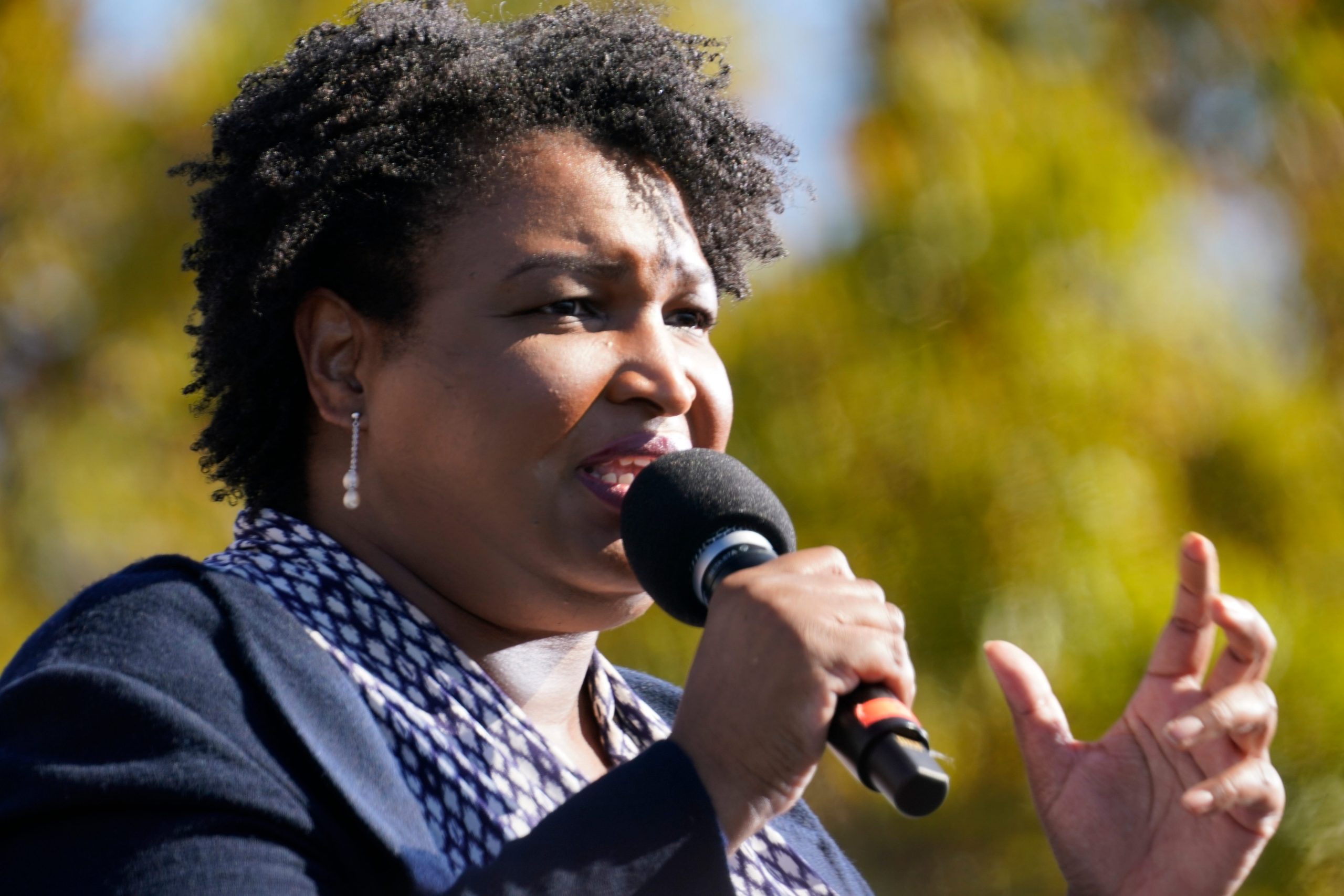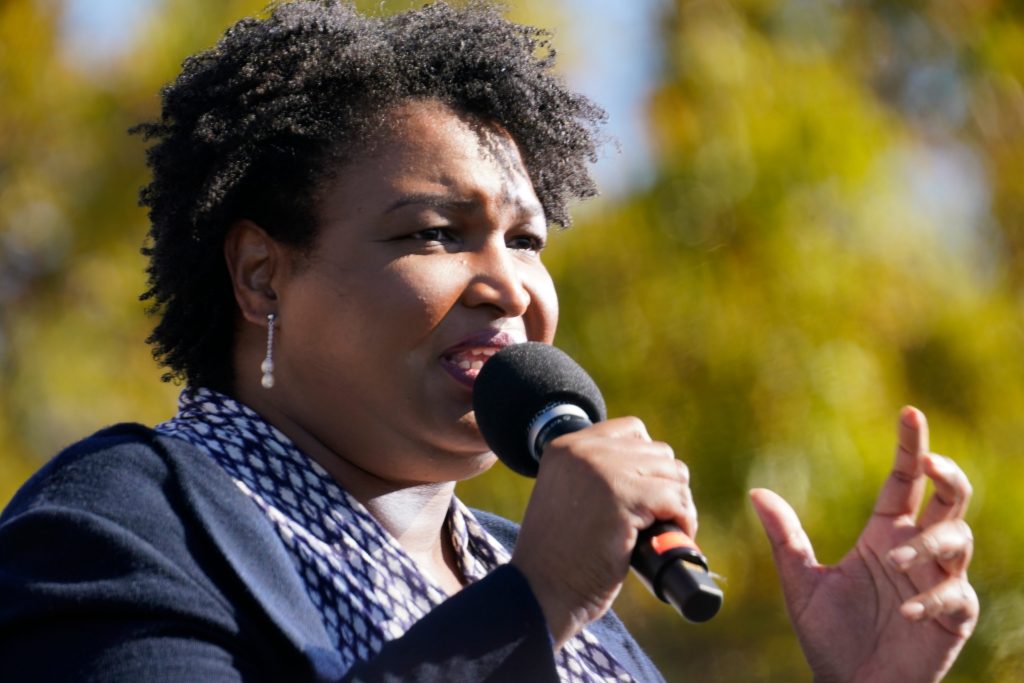
AP Photo/Brynn Anderson, File
- Trump said that the GOP "might have been better" with Democrat Stacey Abrams as Georgia's governor.
- The former president continues to take digs at current Georgia Gov. Brian Kemp.
- Last year, Kemp rejected Trump's entreaties to overturn President Biden's win in Georgia.
- Sign up for the 10 Things in Politics daily newsletter.
Former President Donald Trump still has Georgia on his mind.
After now-President Joe Biden narrowly won the state in last year's presidential race, Trump prodded Republican Gov. Brian Kemp to convene the conservative-led state legislature in order to overturn the results and pressured GOP Secretary of State Brad Raffensperger to "find" additional votes to ensure a statewide win.
Trump's entreaties were rejected, but he has continued to attack both men for what he says was an unfair election process in the state, withholding an endorsement of Kemp in his 2022 reelection campaign and backing Rep. Jody Hice in a Republican secretary of state primary over Raffensperger.
Read more: How Trump could use his relationship with Putin and Russia to skirt prosecution back in the USA
In 2018, Kemp's Democratic opponent was former state House Minority Leader and voting rights activist Stacey Abrams.
The race was highly competitive, with Kemp edging out Abrams by a 50.2%-48.8% margin, or 1.4 percentage points, the smallest margin in a Georgia governor's race since 1966.
Trump was a staunch supporter of Kemp in his first race, but that goodwill has since dried up.
-Brigitte Gabriel (@ACTBrigitte) June 27, 2021
During his first post-presidential rally in Ohio on Saturday, the former president suggested that Abrams might have been a more preferable choice for the GOP than Kemp.
"By the way, we might have been better if she did win for governor of Georgia if you want to know the truth," Trump said. "We might have had a better governor if she did win."
Trump has not endorsed any of the lesser-known candidates running against Kemp in the GOP gubernatorial primary, but the former president will likely play a decisive role in the immediate future of the state party.
